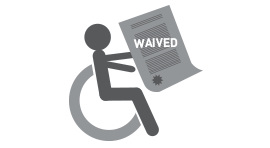Protecting Your Family
The aim of life insurance is to pay a lump sum of money on death. There are three main reasons why a policy may be needed for an individual: to protect your family, to repay a loan on death or to pay an inheritance tax bill. There are also business reasons for a policy. The two types of policies available are term assurance and whole of life policies. There are numerous options available with most life assurance policies, with the main ones being indexation and waiver of premium.
Most life cover policies come with "Terminal Illness Cover." This pays out a lump sum of money if you are diagnosed with a terminal illness. A terminal illness is usually defined as an illness that is expected to lead to death within 12 months. This should not be confused with Critical Illness Cover.
Most life cover policies come with "Terminal Illness Cover." This pays out a lump sum of money if you are diagnosed with a terminal illness. A terminal illness is usually defined as an illness that is expected to lead to death within 12 months. This should not be confused with Critical Illness Cover.
Your browser does not support viewing this document. Click here to download the document.
Pete’s Story
In 2018, aged just 35 Pete was diagnosed with terminal lung cancer and claimed on the terminal illness benefit (which comes with many policies) of his Legal & General life insurance policy (that he’d had in place for 4 years). As Pete says in the video:
“You think you’ll never need it until you get old. Nothing will ever happen to me…”
This is just an example and does not constitute a recommendation or advice.
In 2018, aged just 35 Pete was diagnosed with terminal lung cancer and claimed on the terminal illness benefit (which comes with many policies) of his Legal & General life insurance policy (that he’d had in place for 4 years). As Pete says in the video:
“You think you’ll never need it until you get old. Nothing will ever happen to me…”
This is just an example and does not constitute a recommendation or advice.
|
This is a type of life assurance contract that provides a set amount of cover for a certain amount of time. Once the term of the policy stops, then the policy terminates and there is no payout. This is the cheapest type of life cover policy, as it may or may not be claimed upon. It is usually suited for people who need protection for a pre-determined amount of time. For example, a parent may only require life cover until his or her child reaches the age of 25. Another example, would be a person who took a level £200,000 mortgage over 25 years; they would only require £200,000 of life cover over 25 years and so term assurance may be suitable for them.There is a specific type of term assurance that is designed for a repayment mortgage, where the outstanding loan reduces every year. It is called "deceasing term assurance" and is designed to reduce in line with the mortgage. It is usually guaranteed to repay the mortgage, as long as interest rates are not above a set average amount.
|
Where as term assurance will only last for a certain amount of time and then stop, a whole of life policy will last until your death, where it will pay out. This assumes that you continue to pay for the premiums. Some policies will also have a surrender value after the first few years. The policies may include an investment element and the premiums may be reviewed and may increase in the future. These policies are not as simple as term assurance policies and it is important that you seek professional advice regarding them.
|
As life assurance policies last a long time, the cost of living will tend to rise during this time. To help maintain the value of the life assurance payout, you can select an indexation option, which will increase you cover each year with the cost of living. You premiums will rise as the cover increases but it will allow your cover to maintain its real value.
|
Waiver of premium benefit can be seen as an insurance for your insurance. It protects you if you are unable to work after a set period of time by paying your premiums for you. This will allow your life assurance to continue even if you are unable to work.
|





